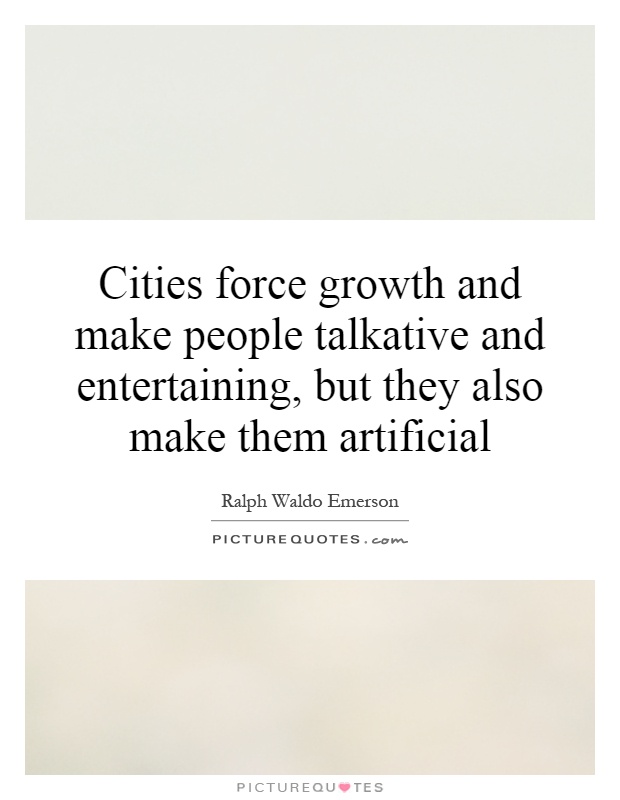Cities force growth and make people talkative and entertaining, but they also make them artificial

Cities force growth and make people talkative and entertaining, but they also make them artificial
Ralph Waldo Emerson, a renowned American essayist, lecturer, and poet, was known for his transcendentalist philosophy that emphasized the importance of self-reliance, individualism, and the connection between nature and the human soul. In his essay "Nature," Emerson explores the idea that cities can have both positive and negative effects on individuals, shaping their behavior and character in unique ways.Emerson believed that cities have the power to force growth in individuals by exposing them to a diverse range of experiences, ideas, and people. In a city, one is constantly surrounded by the hustle and bustle of urban life, which can be both stimulating and challenging. The fast-paced nature of city living can push individuals out of their comfort zones, encouraging them to adapt, learn, and grow in ways they may not have thought possible. Cities are also hubs of creativity, innovation, and culture, providing endless opportunities for personal and professional development.
Furthermore, Emerson suggests that cities make people talkative and entertaining by fostering a sense of community and social interaction. In a city, one is constantly surrounded by people from different backgrounds, cultures, and walks of life, leading to lively conversations, debates, and exchanges of ideas. The diversity of perspectives and experiences in a city can inspire individuals to engage in meaningful dialogue, share their thoughts and opinions, and connect with others on a deeper level. This social aspect of city life can be enriching and fulfilling, creating a sense of belonging and camaraderie among residents.
However, Emerson also acknowledges that cities have the potential to make people artificial by promoting superficiality, materialism, and conformity. In a city, individuals may feel pressured to conform to societal norms, expectations, and standards in order to fit in and succeed. The competitive nature of city living can lead to a focus on external appearances, status symbols, and social hierarchies, rather than on inner growth, authenticity, and self-discovery. As a result, individuals may become disconnected from their true selves, losing touch with their values, beliefs, and passions in the pursuit of external validation and approval.












 Friendship Quotes
Friendship Quotes Love Quotes
Love Quotes Life Quotes
Life Quotes Funny Quotes
Funny Quotes Motivational Quotes
Motivational Quotes Inspirational Quotes
Inspirational Quotes